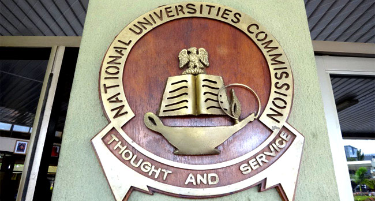The National Universities Commission (NUC) has sounded a grave warning regarding the escalating security threats on Nigerian university campuses. This alarm was raised by the NUC’s Deputy Executive Secretary, Dr. Biodun Saliu, during the 7th Annual Registry Lecture at Elizade University, Ilara-Mokin, Ondo State.
In his lecture themed “The Nigerian University System and its Many Challenges: The Way Forward,” Dr. Saliu highlighted the increasing insecurity across the nation as a significant emerging challenge within the university system. He pointed out that numerous Nigerian universities have reported cases of kidnappings and abductions involving members of their communities.
“A number of Nigerian universities have experienced many cases of kidnap and abduction of members of the university community. Unfortunately, some academic staff and students have died in the process while others are still missing,” Dr. Saliu stated. He noted that incidents of kidnapping have been reported not only in universities in the North but across virtually all parts of the country.
The rising insecurity, according to Dr. Saliu, is severely impacting teaching and research activities, thereby undermining the general well-being of the institutions. He stressed that this insecurity is a barrier to the advancement of higher education in Nigeria, affecting both the safety of individuals and the operational integrity of universities.
In addition to security concerns, Dr. Saliu enumerated several other pressing challenges facing the Nigerian university system. These include inadequate funding, infrastructural deficits, staffing shortages exacerbated by brain drain, poor remuneration, and the failure to prioritize curriculum re-engineering and relevance.
He also pointed to governance and administrative issues, insufficient research and development, weak university-industry linkages and collaborations, undue interference by some professional bodies, an unstable academic calendar, limited access to higher education, the proliferation of illegal degree-awarding institutions, weak NUC laws, and disregard for NUC regulations.
Despite the severity of these challenges, Dr. Saliu remains optimistic that they are not insurmountable. He called for several strategic measures to address these issues. Key among his recommendations is improved funding for universities, including increased budgetary allocations and timely release of funds to public universities. He also emphasized the need for private university owners to view their institutions as non-profit ventures for at least the first decade of their operations, to ensure sustainability and quality education.

Dr. Saliu also advocated for strengthening the legal framework of the NUC to enhance its regulatory capacity. He highlighted the importance of timely curriculum re-engineering and periodic reviews of quality assurance instruments by the NUC. Furthermore, he suggested that strategic planning should be employed to set clear priorities for the development of the higher education sector.
He proposed that more qualified academic staff should be employed based on the specific needs of universities, and that infrastructural facilities across all higher institutions should be significantly improved. Expanding access to university education and enhancing the content delivery of academic programs through ICT-enabled blended learning were also key points in his recommendations.
Dr. Saliu’s address calls for concerted efforts from both public and private stakeholders in the education sector to overcome these challenges. His vision includes a well-funded, secure, and efficiently run university system that can provide high-quality education and foster research and innovation.
The security threats and other systemic issues outlined by Dr. Saliu underscore the urgent need for reforms and improved management in Nigerian universities. As the nation grapples with these challenges, the call for strategic interventions and sustained investment in the higher education sector becomes ever more critical.




